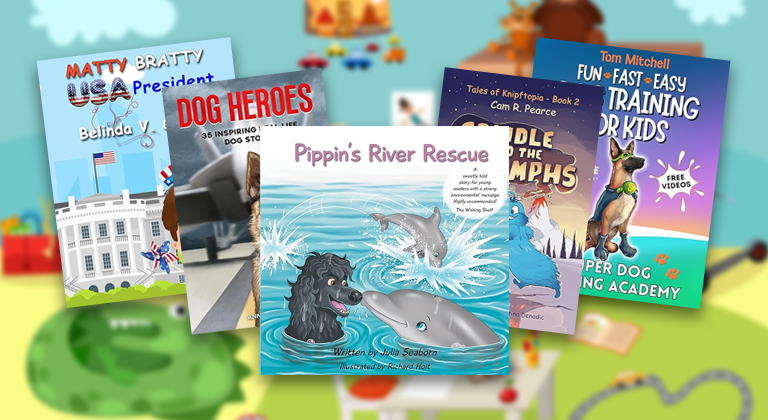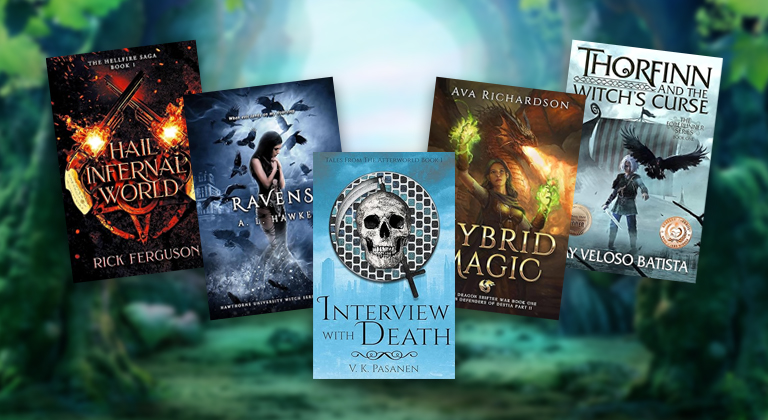5 Tips for Social Media that Sells Books
The most successful authors I know have one thing in common, they not only spend time on social media, but they do it right. For some, social media comes easy but for others, it’s a grind. There are ways to make it easier, though, and even if you just do a little it’ll be better than doing nothing at all. But you can’t just spam them with links to buy your latest book, there’s more to it than that…
There’s a lot of money in social media… apparently. But a lot of authors I speak to don’t seem to be seeing any of it, or don’t know how to leverage their social media platforms to generate engagement and sales. One common refrain is: “I don’t really know what to post” and for that reason, they don’t post anything.
Other authors spend time and effort posting links to their books and other content on social media, but still don’t see any sales generated from what they post, and they find it extremely frustrating. Social media seems to offer a potential audience of thousands, or potentially millions – so why aren’t authors getting clicks and sales from them?
Well, this is going to be another blog post which will either tell you everything you already know, or be a game-changer. However, I think it’s very valuable to get an overview of how to get the most from your social media presence – and these are some good things to know.
1 – Social Media is a sausage factory
I worked in social media for years at the highest level – creating content for some top brands like Applebee’s, iHop and CheapOair. One thing I quickly realized was that generating content for social media was like churning a big handle on a meat grinder – feeding in pics and links into the hopper and getting social media posts splurged out the other end. It was a constant, repetitive grind interspersed by a few moments of really beautiful engagement – as customers and fans left comments, reacted to what you posted, and made all that work seem worthwhile.
For many authors, that’s how social media management feels to them. People keep telling them “you need to be posting regularly on your Facebook page, Twitter account, or whatever other social media channel you use” except it was never obvious WHAT to post, and if you made the effort to post links to your books when they were on sale or free promo, the reaction was underwhelming. It’s not long before even the most disciplined author flaked out.
Don’t worry – it’s supposed to be like this. If social media posts are boring and tedious to create, they’re going to be boring and tedious to read – so don’t bother just making sausage meat.
Your author identity – whether it’s you, or your pseudonymous pen name – is attached to a real, living, breathing writer and if you want to engage with your readers and fans, you need to post stuff that’s interesting to them and makes you seem like a real person. Well, the good news is that you are a real, living human being, even if the name on your driver’s licence isn’t the same as the one on the front of your books. Make posts about stuff other than trying to sell your books or get people to sign up to your mailing list, and you’ll find people start responding more and more warmly to you (or even responding at all) and that’s where you start to get inside their head and create a relationship with them that makes them actually interested in your new book releases and special offers.
2 – Establish a process
Precisely because social media is a sausage factory, the best thing you can do is create a way that makes it simple and streamlined for you to post to your accounts, and establish some guidelines about how and what to post. The easier and quicker you make it to post things on your social media properties, the more likely you are to do it!
For example, if you’re a romance writer and you write MC romance – about motorcycle gangs – you could set up your phone to post to your author Instagram account with a couple of taps of your screen (as quickly and seamlessly as you post to your own social media accounts) and decide: “Every time I see a Harley Davidson, I’ll post a picture of it.” From that moment on, you’ll see Harleys every where you go, and be posting to your social media accounts daily. It’s a rule of psychology called the Baader-Meinhof phenomenon – that once you focus on something, you’ll start seeing it again and again until you begin telling your friends: “Man, it’s so weird, I was just thinking of that yesterday.”
Another trick you can use is an absolute no-no according to so-called social media expert myself – but what’s the point of rules if you can’t break them?
Instagram allows you to cross-post your Instagram post to your Facebook and Tumblr pages at the touch of a button; meaning you update all three properties. According to the principles of good social media, this is lazy and shouldn’t be done…
…but if it’s a choice between posting nothing and posting a repeat of your Instagram post to your Facebook page, I’d take the latter. Something is better than nothing, and the fact that you’re posting a better quality of social media makes up for this.
Remember, it’s all about making it easy for yourself. You’re more likely to post on social media if you make the process as streamlined as possible, and it’s okay to cut corners if the alternative is never taking the journey in the first place.
3 – Build Relationships
Here’s the real trick to building a community on your social media properties – building relationships. Whenever you get a comment, or a share, or a message, or any type of engagement from your social media followers, respond promptly to it with something individualized and positive; even if it’s criticism. The moment you engage with a social media follower, you cross a line into having a relationship with them – and from that point on, you’ve taken ownership of a little bit of their head space, and they’ll feel invested in the success of you as an author, and take more interest in your books.
Just how far you want to take this is up to you – I’ve gone as far as sending free paperbacks of my books to my top fans – but one important thing to remember is to always keep things professional. This is why you should always interact with fans through a Facebook page, not a Facebook account – this is an important rule!
Your fans are awesome. You love and appreciate them – you care about them – but they’re not your friends. Don’t give any personal information away, and maintain an appropriate relationship. I’ve had authors of racy romance tell me they’ve had wildly inappropriate messages from fans, and that becomes scary if there’s information on your author profiles that could help people actually find out where you live.
However, do build that engagement. The mental social energy you save not generating boring, generic content through the ‘sausage factory’ technique should be redirected towards engaging promptly and with depth to every comment or message. This is your battleground – and where you’ll win fans of your books for years to come.
4 – Keep it Positive
One author I worked with saw her promising pen name sunk to ruins when she started posting political things on her author page. In the author’s defense, she wrote about young couples in the big city, and had a fairly liberal and progressive tone to her books. However, when she shared some news articles bashing Trump, a couple of her page followers responded in heated argument… and soon, her page became a war zone. It got so bad that even when she responded with neutral stuff, the same offenders would return to post political comments, and when she reported them she was bombarded with flags for her posts and her Facebook page became unusable.
This is an extreme example – most people aren’t nutcases – but it’s still possible to set an uncomfortable tone on your page if you focus on negative things. That’s not to say you can’t be invested in political issues – right wing or left – but you have to remember that people didn’t follow your page to talk politics; they came for your books.
A lot of authors I give this advice to get very self-righteous, and argue that they should be able to post about whatever they like… so I usually respond with this:
You’re a storyteller, not a reporter or a politician. You write about HUMAN stories – individual, unique stories about people. You can delve deep into political issues in your stories, as long as they’re explored through the experiences of the characters you write about, but if there’s no individual, human story in the stuff you post on your social media pages, it probably has no business being there.
Just like in Step 3, remember that there’s a divide between your readers and your social media followers and who you are really. Keep a positive tone, and only post about human things. This is why I recommend hooking up your phone to be able to post quick and seamless photographs to your author page, because even if you’re just taking pictures of the skyscrapers of New York, or the mountains of Montana, there’s a human element to the picture (because you’re, like, there) and it can generate more meaningful and useful engagement than a heated political argument ever could.
5- Manage your expectations – but leverage the Hell out of them!
Facebook is in the business of making money. Instagram is owned by Facebook, for the same reason. Tumblr might have been the biggest money pit in social media history but there was a money-making plan behind all the changes that Yahoo! made which killed the platform (I didn’t say it was a good plan!)
To that end, you have to realize that your efforts on social media will always be hampered by the burden of profiteering. On Facebook, for example, only 15% of your Page fans can organically see your content; so if you have a thousand followers, only 150 of them will ever see what you post unless you spend some money advertising it.
This is why you shouldn’t expect to make a ton of book sales unless you pair your social media content with paid advertising – or create something massively viral to post (and if you figure out how to do that every time you post, every social media advertising agency in the country wants to speak with you!)
However, a combination of good social media management and paid posts can be explosive. If you use paid advertising – to gain subscribers, or promote your books – you’ll find a lot of organic engagement happens beyond the clicks you paid for. People will comment on, like, and share your paid-to-promote content, and if you then go in and respond to those comments and likes, you do what I’d suggested in Step 3 and get inside their heads. From that point on, the person who only saw your post because you’d paid to promote it will now have crossed that barrier into a digital relationship with you – and you might find them becoming a fan of your page, and boosting your visibility on social media.
You can pay to gain followers and fans for your social media pages – but I found I gained the first 2,000 subscribers to my Facebook page through the impact of posts I’d paid to promote for entirely different reasons; to gain subscribers or sell books.
Engagement – taking the time to build relationships with your fans and followers – is where the real value in social media lies, and can provide you with significantly more value for your advertising spend than mere clicks alone.
Conclusion
I started this blog by talking about how some authors thought that social media’s potential audience – of thousands or millions of users – would make generating sales easy. Nothing in the life of being a writer is easy (but it is rewarding, fun, and potentially highly profitable.)
However, if you’re not using social media – even without any advertising dollars behind it – you’re missing a trick. Social media is free advertising, and often you’ll get some great results even if the only thing you invest is the time and effort to produce interesting and engaging content.
Remember, people read books to delve deep into the human experience. Be as human and experiential on social media as you can, and you’ll automatically gain more traction because it’s like an advertisement for your writing. If you can make people feel engaged, and interested, and positive through the things you post, it’s almost a no-brainer to them that your writing will be similarly engaging. Consider social media to be a sample tray for the type of storyteller you are; and you’ll be amazed at the people who develop a taste for what you have to offer.











